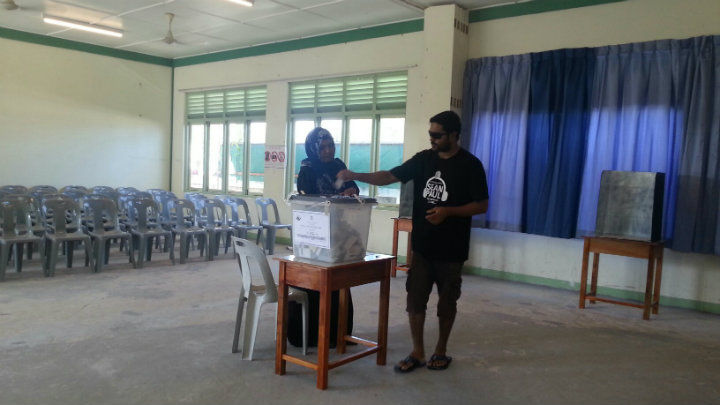Council by-elections cancelled after president ratifies changes to decentralisation law
The fifth amendment to the Decentralisation Act ratified by President Abdulla Yameen on Wednesday states that by-elections must not be held if an island, atoll, or city councillor resigns one year after the local council elections.

30 Jul 2015, 09:00
Three island council by-elections scheduled for Saturday have been cancelled after President Abdulla Yameen ratified changes to the decentralisation law yesterday.
The fifth amendment to the Decentralisation Act states that by-elections must not be held if an island, atoll, or city councillor resigns one year after the local council elections.
However, by-elections must still be held for vacant seats if a council does not have a quorum to hold meetings or if a councillor resigns within the first year.
Local councils are elected for a three-year term. The resignation of councillors have triggered several by-elections since the local government system was introduced in February 2011.
Become a member
Get full access to our archive and personalise your experience.
Already a member?
Discussion
No comments yet. Be the first to share your thoughts!
No comments yet. Be the first to join the conversation!
Join the Conversation
Sign in to share your thoughts under an alias and take part in the discussion. Independent journalism thrives on open, respectful debate — your voice matters.




